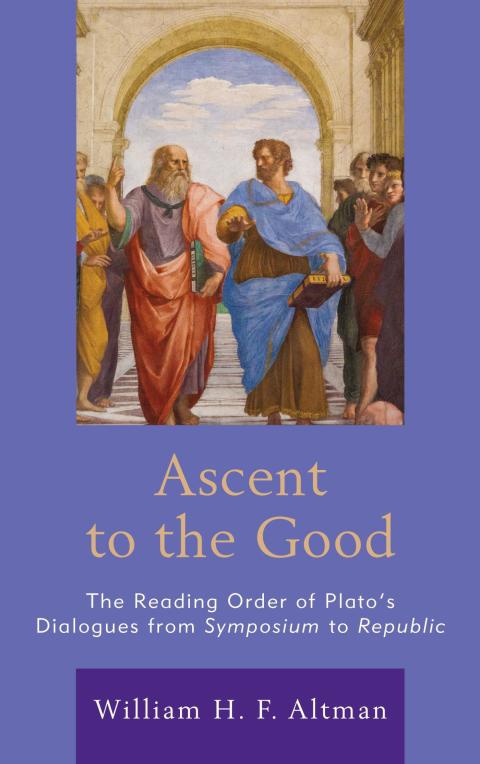Download Ascent to the Good: The Reading Order of Plato's Dialogues From Symposium to Republic PDF Free - Full Version
Download Ascent to the Good: The Reading Order of Plato's Dialogues From Symposium to Republic by William H F Altman [Altman, William H F] in PDF format completely FREE. No registration required, no payment needed. Get instant access to this valuable resource on PDFdrive.to!
About Ascent to the Good: The Reading Order of Plato's Dialogues From Symposium to Republic
<p>At the crisis of his Republic, Plato asks us to imagine what could possibly motivate a philosopher to return to the Cave voluntarily for the benefit of others and at the expense of her own personal happiness. This book shows how Plato has prepared us, his students, to recognize that the sun-like Idea of the Good is an infinitely greater object of serious philosophical concern than what is merely good for me, and thus why neither Plato nor his Socrates are eudaemonists, as Aristotle unquestionably was. With the transcendent Idea of Beauty having been made manifest through Socrates and Diotima, the dialogues between Symposium and Republic--Lysis, Euthydemus, Laches, Charmides, Gorgias, Theages, Meno, and Cleitophon-- prepare the reader to make the final leap into Platonism, a soul-stirring idealism that presupposes the student's inborn awareness that there is nothing just, noble, or beautiful about maximizing one's own good. While perfectly capable of making the majority of his readers believe that he endorses the harmless claim that it is advantageous to be just and thus that we will always fare well by doing well, Plato trains his best students to recognize the deliberate fallacies and shortcuts that underwrite these claims, and thus to look beyond their own happiness by the time they reach the Allegory of the Cave, the culmination of a carefully prepared Ascent to the Good.</p>
Detailed Information
| Author: | William H F Altman [Altman, William H F] |
|---|---|
| Publication Year: | 2018 |
| ISBN: | 1498574629 |
| Language: | other |
| File Size: | 1.2555 |
| Format: | |
| Price: | FREE |
Safe & Secure Download - No registration required
Why Choose PDFdrive for Your Free Ascent to the Good: The Reading Order of Plato's Dialogues From Symposium to Republic Download?
- 100% Free: No hidden fees or subscriptions required for one book every day.
- No Registration: Immediate access is available without creating accounts for one book every day.
- Safe and Secure: Clean downloads without malware or viruses
- Multiple Formats: PDF, MOBI, Mpub,... optimized for all devices
- Educational Resource: Supporting knowledge sharing and learning
Frequently Asked Questions
Is it really free to download Ascent to the Good: The Reading Order of Plato's Dialogues From Symposium to Republic PDF?
Yes, on https://PDFdrive.to you can download Ascent to the Good: The Reading Order of Plato's Dialogues From Symposium to Republic by William H F Altman [Altman, William H F] completely free. We don't require any payment, subscription, or registration to access this PDF file. For 3 books every day.
How can I read Ascent to the Good: The Reading Order of Plato's Dialogues From Symposium to Republic on my mobile device?
After downloading Ascent to the Good: The Reading Order of Plato's Dialogues From Symposium to Republic PDF, you can open it with any PDF reader app on your phone or tablet. We recommend using Adobe Acrobat Reader, Apple Books, or Google Play Books for the best reading experience.
Is this the full version of Ascent to the Good: The Reading Order of Plato's Dialogues From Symposium to Republic?
Yes, this is the complete PDF version of Ascent to the Good: The Reading Order of Plato's Dialogues From Symposium to Republic by William H F Altman [Altman, William H F]. You will be able to read the entire content as in the printed version without missing any pages.
Is it legal to download Ascent to the Good: The Reading Order of Plato's Dialogues From Symposium to Republic PDF for free?
https://PDFdrive.to provides links to free educational resources available online. We do not store any files on our servers. Please be aware of copyright laws in your country before downloading.
The materials shared are intended for research, educational, and personal use in accordance with fair use principles.

